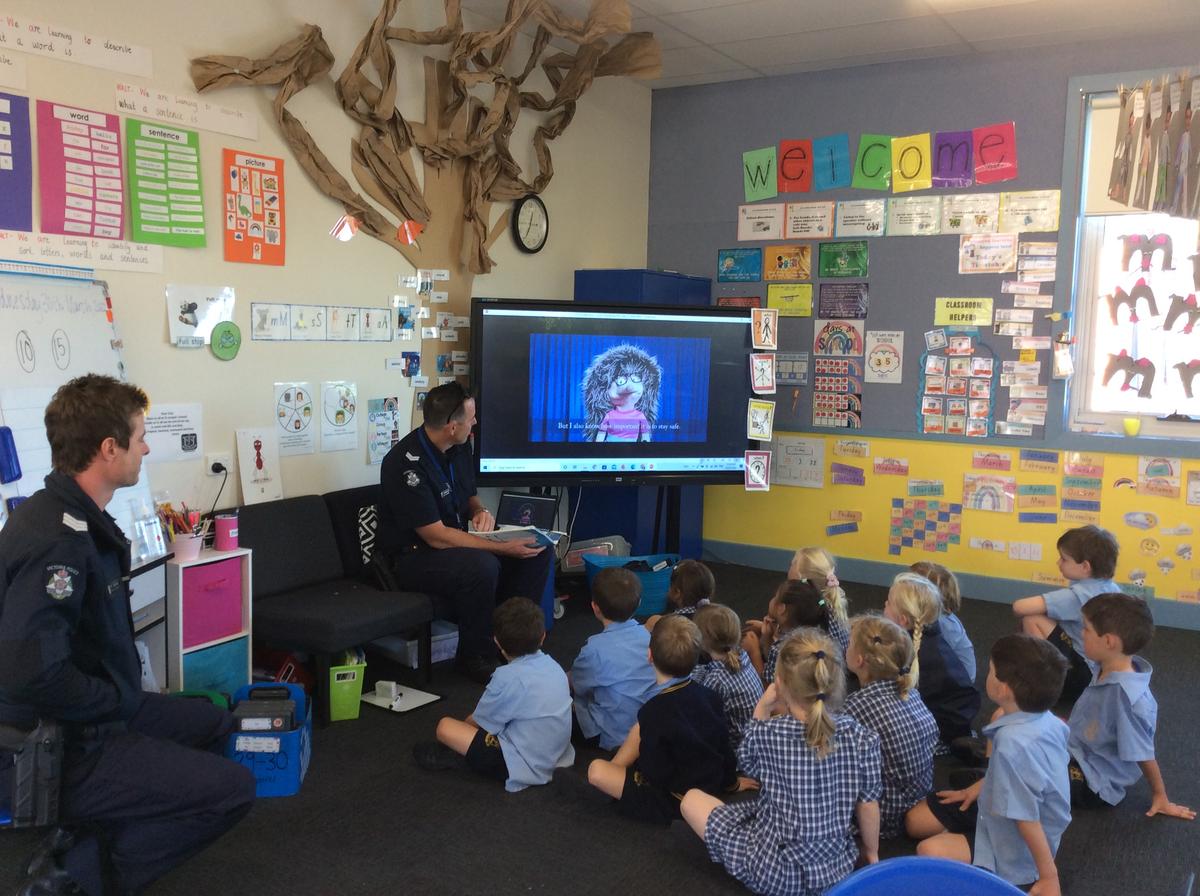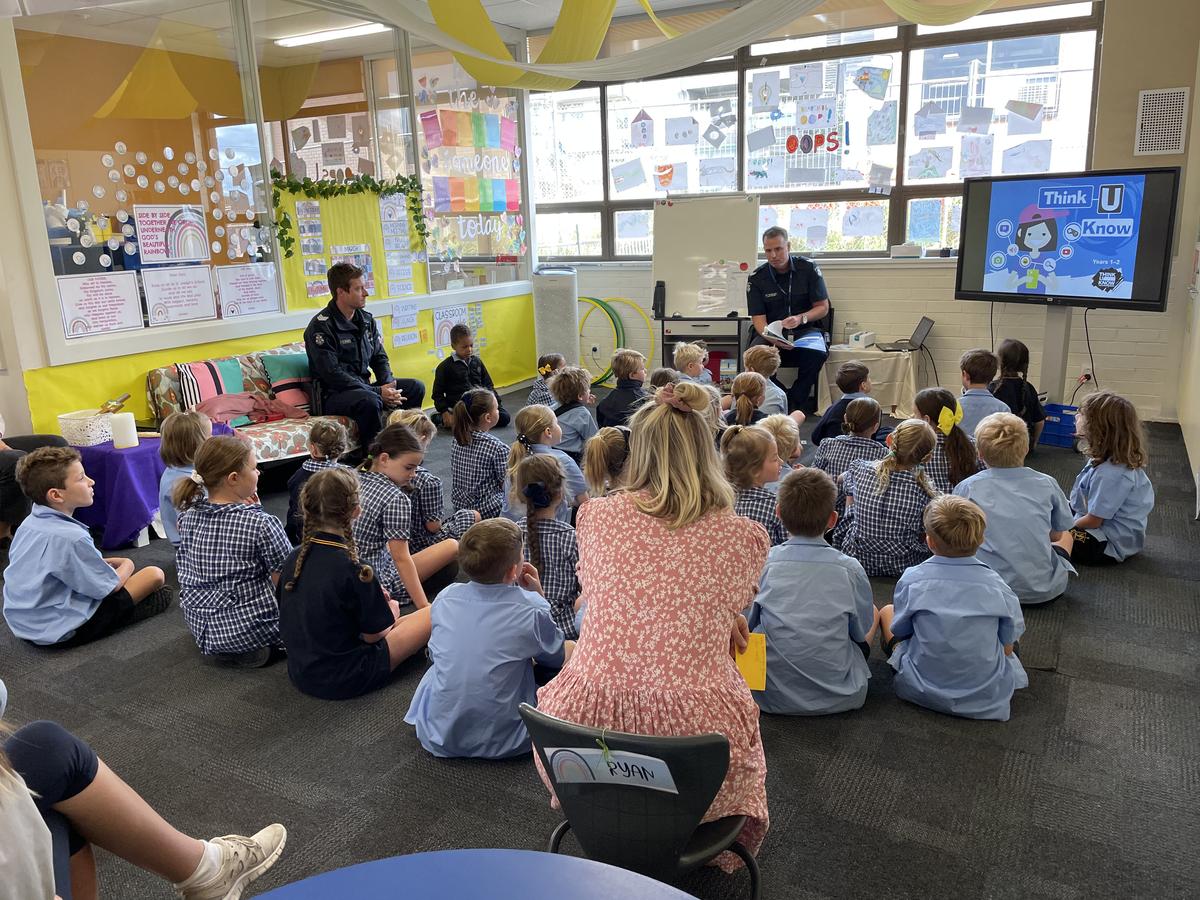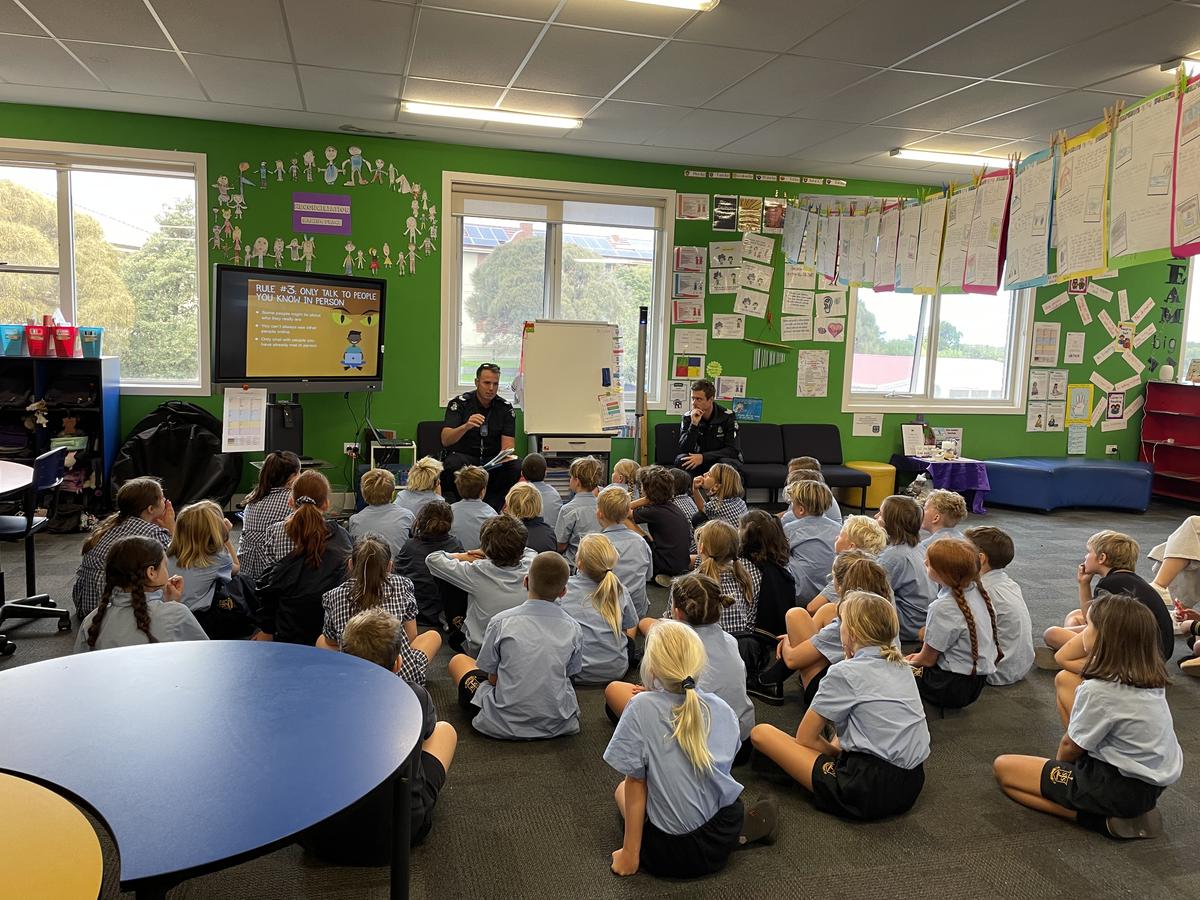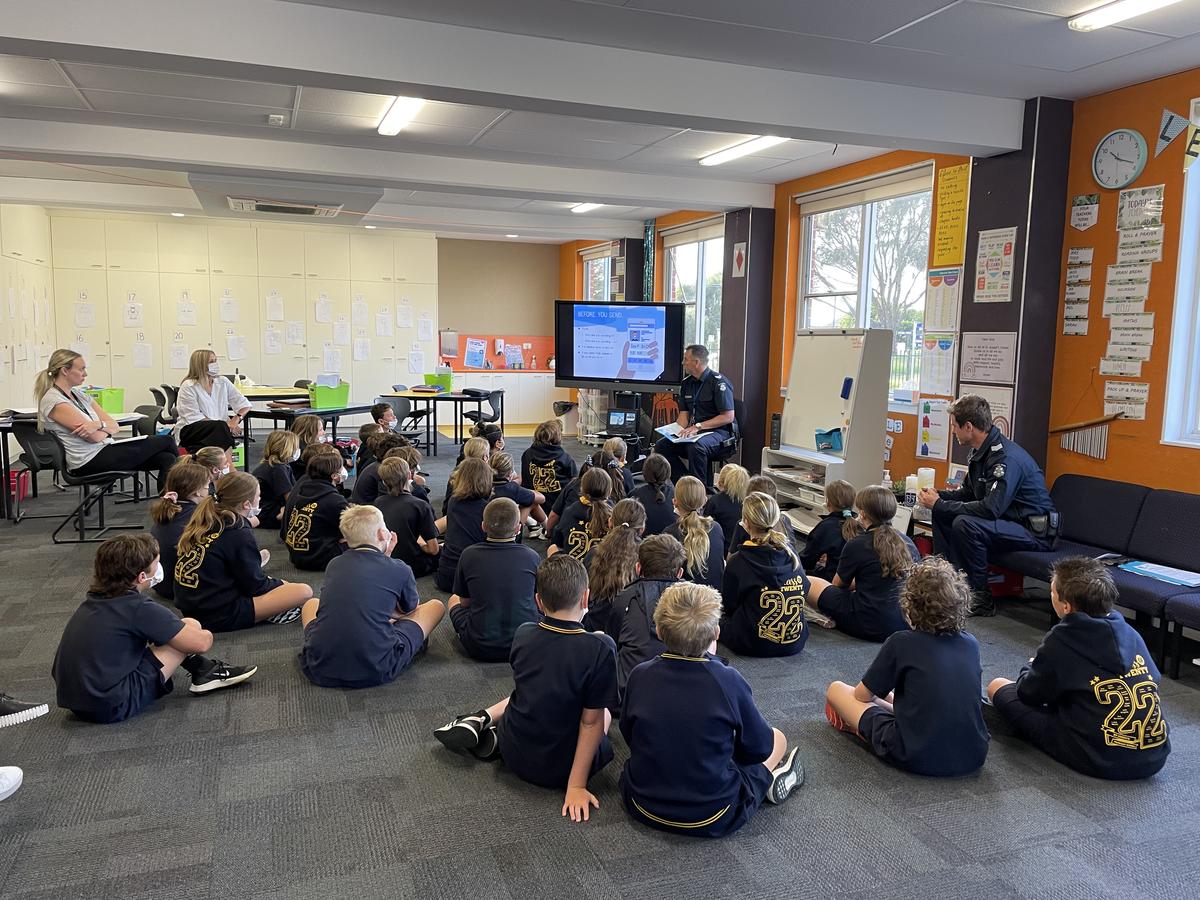Learning and Teaching
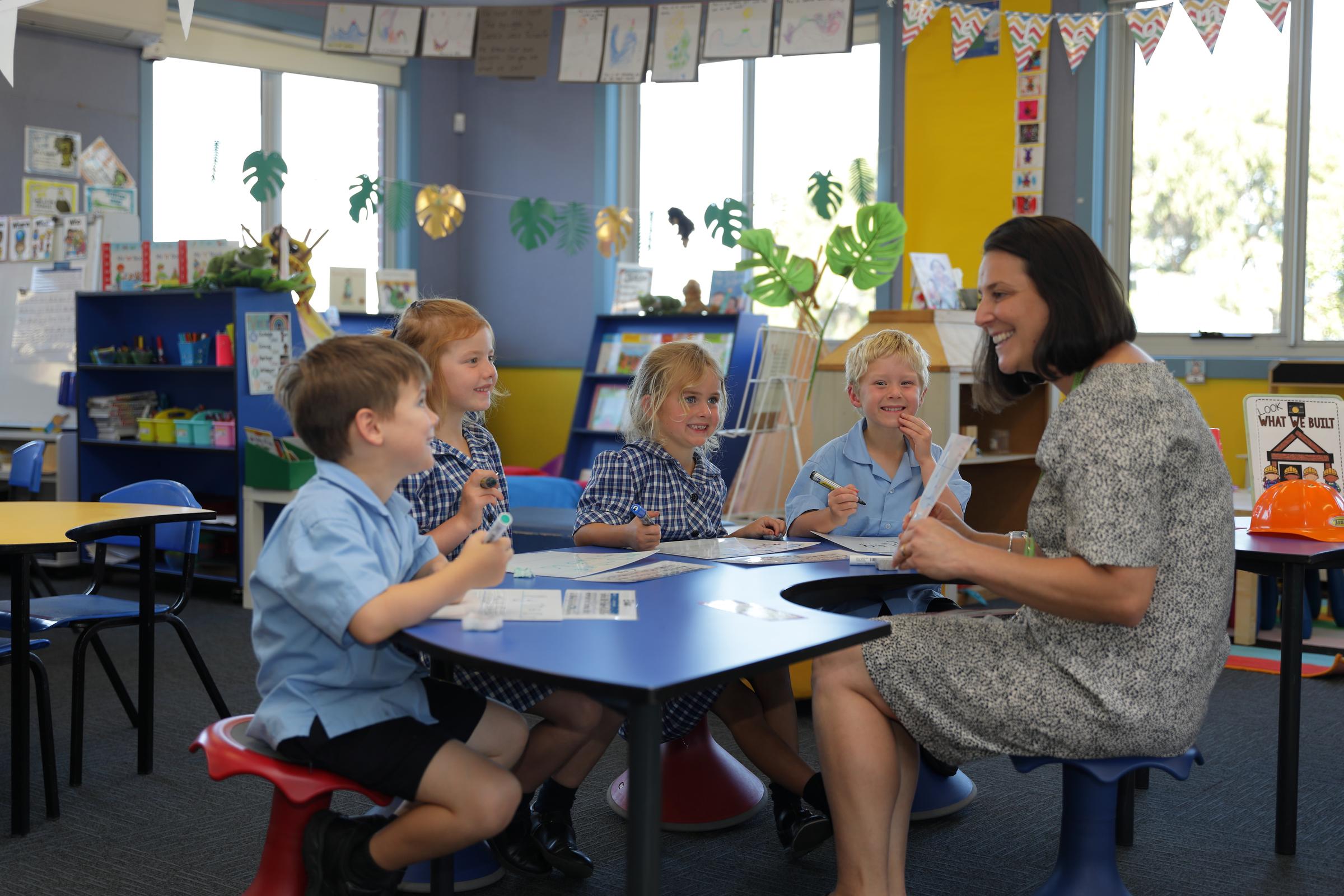
CYBERSAFETY SESSIONS
Today we had Matt and Trent, from the Somerville Police Pro-Active Unit, visit us to talk to the students about how to stay safe on the internet. The talks were modified to suit the various year levels.
The students listened respectfully and were able to ask questions and interact with Matt and Trent about Cyber Safety.
PREP SESSION - KEY LEARNINGS
- Thinking about what the internet is and what games we play on the internet.
- Asking a parent if we are allowed to use or play on the internet.
- Not telling anyone, other than our mum or dad, our passwords.
- Not telling strangers our name, how old we are or where we live
PREP STUDENT COMMENTS
"Always ask to go on the internet and we heard the sirens on the police car." Joe
"Don't go get the ipad when your mum says no!" Paul
"Don't tell anyone your password, just your mum or dad." Aleesha
"I learnt that you never talk to strangers." Saoirse
1/2 SESSIONS - KEY LEARNINGS
- Creating accounts when we are not old enough to use certain apps or online sites means that we are not being truthful online about who we are.
- We must ask our parent or guardian's permission before using devices and let them know what we are doing on them.
- We must keep all profiles on 'Private' and only 'accept' people we know.
- We must never use our real name as our usernames.
- We need to think about what we post and must never share the following details: address, real name, online password, phone number, school and email.
- Police can track online activity even when data disappears.
- The first person we tell about something that happens online is our parents.
- If we can't talk to our parents about something, we can call KidsHelpline on 1800551800.
1/2 STUDENT COMMENTS
"You can get scammed on the internet." -Oliver O
"We don't share our personal details."- Annabel
"Don't talk to anyone online we don't know." Ryan
"You shouldn't respond when people talk to you online, only with your friends."-Lautner
"Do not post a video in front of your street sign in your school uniform."-Billy
"Don't talk to people you don't know." -Chloe
"Never text strangers." -Christopher
"Don't go on games or apps if you're not old enough." -Charlie
"You have to be a certain age to go on games." - Ace
"Don't share your name, phone number or address to people online." -Kirra
3/4 SESSION - KEY LEARNINGS
Rule 1 - Ask an Adult First
Some things are only for teenagers and adults
If an adult knows you are on the internet, they can help you.
Good option - messenger kids - for keeping in contact with friends online.
Rule 2 - Keep Your Information Safe
Choose a nickname or made up name for playing games - usernames don’t have to be your first and last name.
Say no if someone asks for personal information such as your name, age or address.
Keep your accounts ‘private’
When taking and posting photos try to make sure you don’t include these things: uniform, school info, signs (where you are).
Rule 3 - Only Talk to People You Know in Person
Some people might lie about who they really are.
You can’t always see other people online.
Only chat with people you have already met in person.
The average age of people playing games online is 35 - if you don’t actually know who you are talking to online they may not be who you think they are!
Not everyone is who they say they are! If you’re unsure about someone you’re talking to online, let your parents/guardian/teacher know.
Remember: If someone is insisting you give them personal information, leave the game or block them. If someone is offering you something for free - usually they want something in return.
Playing Games
Where possible - don’t play online! Maybe see if you can have a playdate with a friend instead so you can play offline together.
Play in ‘single player’ mode or with trusted friends.
Not everyone will be your age.
Block and report users who don’t play nice.
Police are Here to Help
You always have the right to feel safe.
Police are here to help, even when you are online.
Be kind, think carefully about what you do and say online. Nobody wants to feel like they are being bullied. Think about how it would make you feel if that was said to you.
3/4 STUDENT COMMENTS
“I learnt not to talk to strangers online, only talk to people you know.” Xavier
“I’m not going to share my name on a game” Jeremy
“If you don’t feel comfortable telling a parent, call Kids Help Line.” Jack F
“I learned that older people can lie easily online.” Lily
“I learned that you have to be 13 plus to go on TikTok.” Kye
“I learned that online can be very unsafe. People can be double your age online.” Sunny
“I learnt I shouldn’t share photos of my school, uniform or the place I am at, online.” Evie
“I learnt to really think about who I’m playing an online game with.” Olive
5/6 SESSION - KEY LEARNINGS
We learnt that it is possible to find yourself in a situation where the police are notified if you are doing the wrong thing online. We discussed ways in which we can stop bullying. An example of this was in online group chats. If you find yourself in a group chat where someone is being bullied you should let the victim know that you are on their side and notify a parent or guardian. You can then leave the group chat. Sometimes it might be necessary to screenshot messages.
5/6 STUDENT COMMENTS
Lucy- "I learnt that the average age of people on gaming websites is 35."
Lachy- "I learnt that you can take photos of chats and that people can hide this from others."
Elizabeth- "I learnt that some people can still access your information, even if your profile/account is private."
Billy- "I didn’t know that when you send something on snapchat others can take a screenshot and you may not be notified."
Issy- "I learnt that most social media, such as Instagram and Facebook, you need to be 13 years old."
Rani- "I learnt that when somebody screenshots something, like a photo that you have sent them, it is then their property."
Renee- "I learnt that most online games are unsafe because there are people who purposefully act younger than they are to possibly trick or scam younger people."
Getting Help
There is always someone who will listen
You are never alone
Kids helpline: 1800 55 1800 or kidshelpline.com.au

